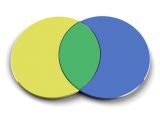One of our staff members is contributing considerably to a News Archiving service at Mu. Any well educated (Masters, PhD or above) users who wish to make comments on news sites, please contact Jim Burton directly rather than using this list, and we can work on maximising view count.
Queer
 | ||||||
| NewgonWiki's series on MAP culture war and war of adjacency | ||||||
|---|---|---|---|---|---|---|
|
| ||||||
| "Normalization" | "Groomer" | Trans Kids Validity Policing | Lolicon Debate MAP & LGBT Alliances | Proship Pedophobia | Vigilantism | Moral panic Masculism | Feminism | Queer Ageism | Censorship | Hoax pedophilia Anti | Pro-recovery | Alternative Initialism Transage | Kinky Kids | Assimilationism Right-wing politics | Communism Activist model Erastoconservatism (pro-pederasty) |
||||||
|
| ||||||
| Template: Adj - This template |
Queer is an umbrella term for people whose sexual desires or gender identity/expression fall outside whatever is deemed to be normative or politically acceptable in mainstream society. In today's "enlightened" western world, Queer is incorrectly assumed to be a shorthand way of demarcating a minority mainstream identity that is simply not heterosexual (or cisgender). In some instances, there is an added caveat, namely that some homosexual and transsexual people may be excluded from queerness on the basis of politically unacceptable desires, for example "chronophilia" or "paraphilia". This revisionist definition of queerness is highly visible in online communities following the mainstreaming of the LGBTQ+ Movement, but was seldom seen prior.
Originally meaning 'strange' or 'peculiar', queer came to be used pejoratively against those with same-sex desires or relationships in the late 19th century. Beginning in the late 1980s, queer activists, such as the members of Queer Nation, began to reclaim the word as a deliberately provocative and politically radical alternative to the more assimilationist branches of the LGBT community. This original repurposing of the term queer, has more similarities with the way anti-assimilationist paraphiles currently use the term paraphile, than how present-day assimilationist gay men and lesbians use the term queer.
In the 21st century, queer became increasingly used to describe a broad spectrum of non-normative sexual or gender identities and politics. Academic disciplines such as Queer Theory and Queer Studies share a general opposition to binarism, normativity, and a perceived lack of intersectionality.
An influential and popular definition of "Queer" comes from David Halperin's Saint Foucault: Towards a Gay Hagiography:
Queer is by definition whatever is at odds with the normal, the legitimate, the dominant. There is nothing in particular to which it necessarily refers. It is an identity without an essence. "Queer," then, demarcates not a positivity but a positinality vis-a-vis the normative - a positionality that is not restricted to lesbians and gay men but is in fact available to anyone who is or who feels marginalized because of her or his sexual practices: it could include some married couples without children, for example, or even (who knows?) some married couples with children - with, perhaps, very naughty children. [Italics in original].[1]
The queerness of MAPs (particularly heterosexual MAPs) is a point of contention both inside, and outside their community. Some MAPs refuse to use the term, or associate with it. In 2019, Allyn Walker studied 'The Use of Queer-Spectrum Identity Labels Among Minor-Attracted People', finding varied responses and reasons behind MAPs identifying as 'gay', 'queer', and so on.[2] Walker also noted the history of association between MAPs and other queer communities:
While MAPs often struggle to disclose their attractions to friends and family, LGBT individuals and other queer communities continue to have these struggles as well. Even with this and other commonalities, however, MAPs are not generally accepted by queer communities. This was not always the case. Multiple researchers have explored ties between gay rights organizations and MAPs lasting from the 1960s and declining until, in some cases, the early 1990s (Chenier, 2008; Janssen, 2017; Paternotte, 2014; Thorstad, 1991). Thorstad (1991) quoted a 1969 article in a gay newspaper as saying, “‘Off the consenting adults bullshit!’” (p. 251). He added, “the Stonewall Generation [...] affirmed the joys of an outlaw sexuality in the face of the outmoded moral norms of the dominant society,” (p. 252), showing acceptance of individuals with attractions to minors.[3]
See also
- Michel Foucault - Theorist.
- Richard Yuill - Theorist.
- Gayle Rubin - Theorist.
- David Halperin - Theorist.
- Guy Hocquenghem - Theorist.
- No Future: Queer Theory and the Death Drive - Critical essay.
References
- ↑ Halperin, Saint Foucault: Towards a Gay Hagiography, p. 62.
- ↑ Walker, A. (2019). “I’m Not like That, So Am I Gay?” The Use of Queer-Spectrum Identity Labels Among Minor-Attracted People, in Journal of Homosexuality, 67:12, pp. 1736-1759.
- ↑ Ibid, p. 4.
- Official Encyclopedia
- Gay
- Queer Theory
- Terminology
- Terminology: Academic
- Terminology: MAP
- Terminology: Popular
- History & Events
- History & Events: British
- History & Events: American
- History & Events: International
- History & Events: 1990s
- History & Events: 1980s
- History & Events: 1950s
- History & Events: 19th C
- Countries and Cultures
- Countries and Cultures: Historical